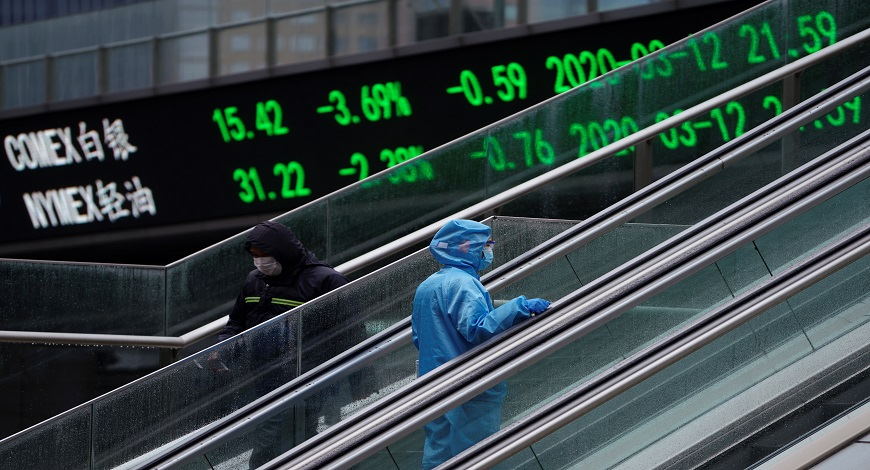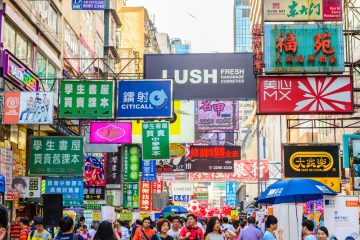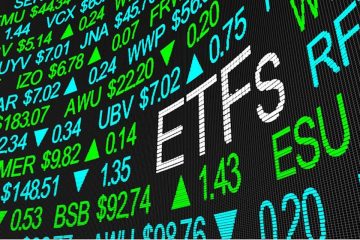Latest COVID-19 wave less damaging for emerging market stocks

Huge COVID-19 outbreaks in India, Brazil and Turkey have put developing economies at the epicentre of the pandemic, but their reluctance to fully lock down combined with hopes of vaccine progress globally appear to be desensitizing markets.
A move on Wednesday by the United States to back giving poorer countries access to vaccine blueprints has been widely welcomed – but it won’t immediately close the widening gap in their rollout compared with developed nations. read more
Brazil, India and Mexico are among the five countries with the highest death rates from coronavirus, and low-income countries are estimated to need $200 billion over five years to battle the pandemic.
Vaccine rollouts are only just beginning in China, India, Russia, South Africa and Brazil, with the latter making the most progress with around 14% of its population now having received at least one dose of vaccine.
But there are only limited signs of the patchy rollout, or the wider battle against the pandemic, roiling equity markets.
MSCI’s benchmark EM stocks index (.MSCIEF), which spans 27 countries, is up 48% over the past year, a similar level to the broader gauge of world stocks (.MIWD00000PUS), including the United States where nearly half of the population has received at least one dose of vaccine.
In comparison, during the initial wave of the virus in 2020, $2.2 trillion was shaved off the overall value of MSCI’s country emerging market share index.
Since then, they’ve surged by $4 trillion.
Investors have also gradually moved back into emerging equities, putting in $14.2 billion in April after pulling out a combined $83 billion from EM equity and bond markets at the peak of the panic in March 2020, according to the Institute of International Finance.
India, at the eye of the COVID-19 storm recently, has seen its market rise 5% year to date, even as it grapples with more than 21 million infections and has so far given only around 10% of its population at least one jab.
“From an investment perspective on India, the overall view that I have is that it’s transitory,” said Edward Evans, portfolio manager, emerging markets equity at Ashmore Group.
“The policy stance has been very proactive, has been very supportive and together with keeping expansionary monetary policy, that provides a very supportive liquidity backdrop that underpins some visibility on how earnings could unfold, and therefore, enables you as an investor to build conviction of how that can play out.”
VACCINE RELIEF
With less fiscal resources to splurge than their richer peers, many emerging central banks are expected to remain relatively cautious to ensure fragile economic recoveries take root.
Unlike during the first wave of the virus, investors can take comfort in the more imminent prospect that inoculation drives will eventually yield success.
Signs of encouragement emerged this week. U.S. President Joe Biden gave his support to waiving intellectual property rights for COVID-19 vaccines, and the leaders of the world’s 20 largest economies will commit for the first time to fully fund a World Health Organization scheme to distribute vaccines and drugs to poorer nations.
Even so, the world still needs another 3 billion doses to reach 60% herd immunity this year, said Simon Quijano-Evans, Gemcorp Capital’s chief economist.
And unlike the sweeping lockdowns during 2020 that prompted sharp downturns in economic activity, governments this time are generally opting for more targeted measures. India’s government, for example, has resisted calls for a fresh nationwide lockdown, but several states have imposed social curbs.
“In general, EM economies have become a little less sensitive to incidence rates because governments haven’t locked down or effectively people have had to go to work to eat,” said Deutsche Bank’s Oliver Harvey.



